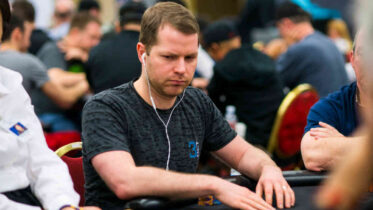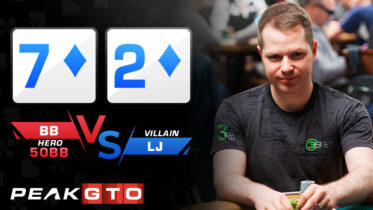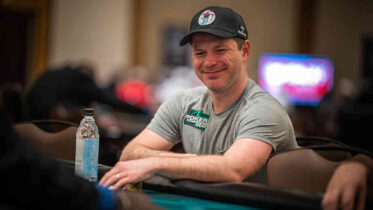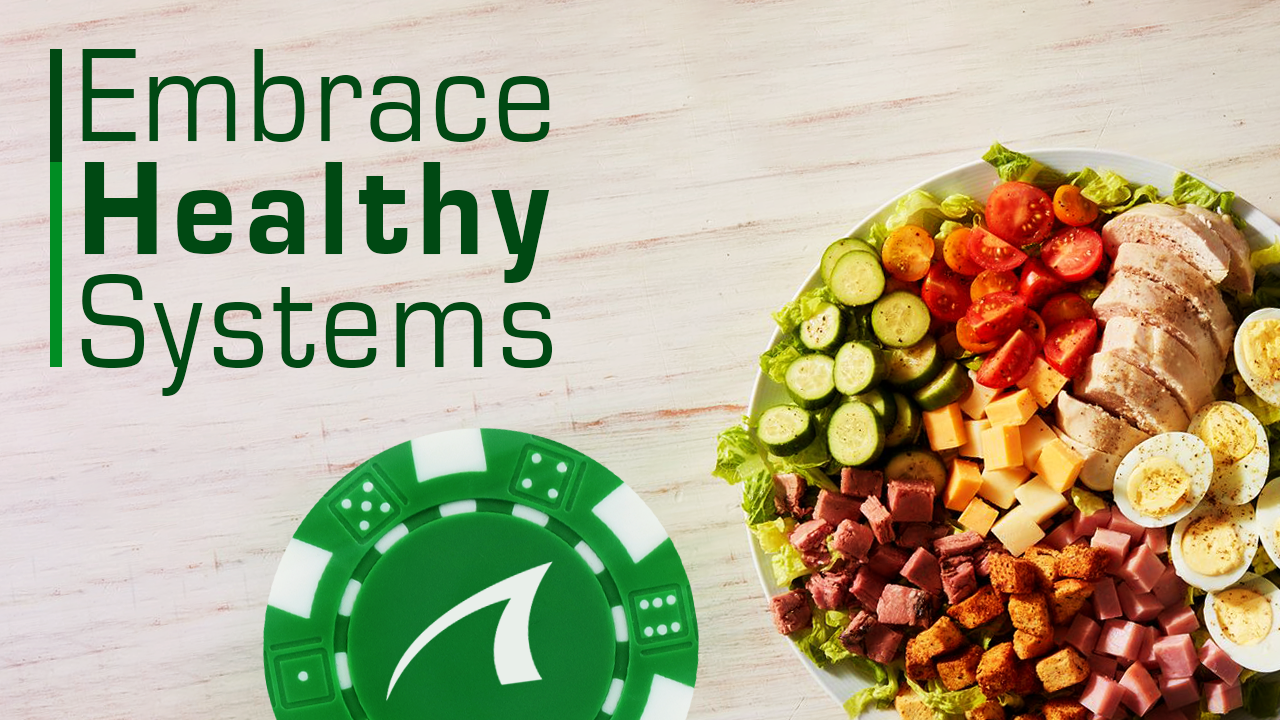A common poker problem faced by many new players is knowing when to play bigger limits. The biggest obstacle to moving up is your ego, saying “you deserve it” and “that you’re better than the rest.” To silence your ego real quick, remember that winning a tournament doesn’t prove you’re the best, not when so much of it is luck. All a big win does is give you bragging rights, so if winning a tournament doesn’t equate to moving up, then what does?
When To Take Shots + Move Up In Multi-Table Tournaments
The Truth About Multi-Table Tournaments
You Can Win 100x Your Investment
What makes MTT’s great is for a small buy-in, you can win a huge multiplier payout, like 150 buy-ins from just one score.
You Can Go A Long Time Without Winning
It takes a lot of good fortune to come first-place, so it’s important to acknowledge how luck will impact your MTT results. However, if you can put in volume and know ICM strategy well, then you’re giving yourself more opportunities to have a string of good luck. The higher the limits, the more players care about their investments and the harder it’ll be to win regularly. Therefore, 1-in-50 runs will be victorious while the other 49 you’ll fall short.
Your Bankroll Strategy Should Incorporate These Factors
Your bankroll needs to be able to withstand the 49 run losses. It’s common to go 50+ games without a significant score in large field MTTs or 10-20 games without cashing. So have a cushion, like 100 buy-ins.
The Power Of Bankroll Management
Proper BRM Means You Can Always Play
Having good bankroll management is one of the most important things you can do in poker. It means you can stay in the game without having to inject money back into your account.
No Worries, No Stress, Peak Performance
My philosophy is never go broke; stay in the game, so you don’t have to reload. It’s comforting because even if you have a bad beat, it won’t impact your day-to-day. You’ll play better without the emotional tax of needing the money to cover your bills.
Separate Your Poker Bankroll From Your Life Bankroll
To play your best, have a separate poker and a life bankroll so you can’t reinject cash into your poker roll. Now, if you’ve got disposable income, you can afford to be more aggressive with your bankroll, as reloading isn’t an issue.
Kelly Criterion = True Bankroll Invincibility
If you want to be consistently making money and creating good habits from the get-go, your roll should be protected, and you shouldn’t need to reload. A concept that breaks this down well is the Kelly Criterion, which compares the size of your bankroll to the amount being risked and all possible outcomes.
The Kelly bet is the optimal amount for maximizing the expected bankroll growth for an average luck gambler while minimizing the bankroll swings and the risk of ruin. Think about this as a GTO approach. This Criterion can be your best friend if you’re technical; if not, the rule is the more players, the more variance so the less you’ll win. So when you’re playing tournaments with 45 players you want 50 buy-ins, for up to 250 players you’ll want 100 buy-ins and for over 500 players you’ll need 200 buy-ins. The bigger the field size, the more appealing the top prize, but the odds of winning decrease.
How To Know If A Limit Is Right For You
Do You Feel Comfortable, Stimulated?
If the buy-in for the game makes you feel uncomfortable at the proposition of losing it, then you’re playing outside your comfort level. If the amount you’re playing for leaves you are not caring about the outcome, then you’re playing too small. You have to find your sweet spot that makes you excited about winning and at peace with the thought of losing.
Range Of Potential Emotional Outcomes
The range of possible outcomes goes from slightly disappointed for busting out on the one hand to victory on the other, and all the scores in between make you feel good. What you don’t want is a do (life-changing cash) or die (end of the world) mentality, as the emotional pressure will alter your performance because you “need to win.”
Are You Able To “Pull The Trigger”?
To be good at poker requires you to take risks, if you’re not comfortable doing so, you’re going to weak/tight your money away, fold too often or allow yourself to get short-stacked and put all your hope into the cards, rather than your skills. The skill for making profitable betting decisions is believing you’re the best player at the table.
Besides, it’s more fun when you win, and if you’re the best, you’ll win more often. If you want to improve, take a shot playing against tougher competition, if you win it’s gravy, if not go back to your regular grind. Just remember, shot-taking is the exception, not the rule, when you sit down to your session.
When To Move Up
When it comes to moving up, your decision should not based on how many tournaments you’ve won or poker hands you played. If you can master a limit and win consistently, that’s when you want to consider moving up because you’ll have the confidence and the results to back it up.




